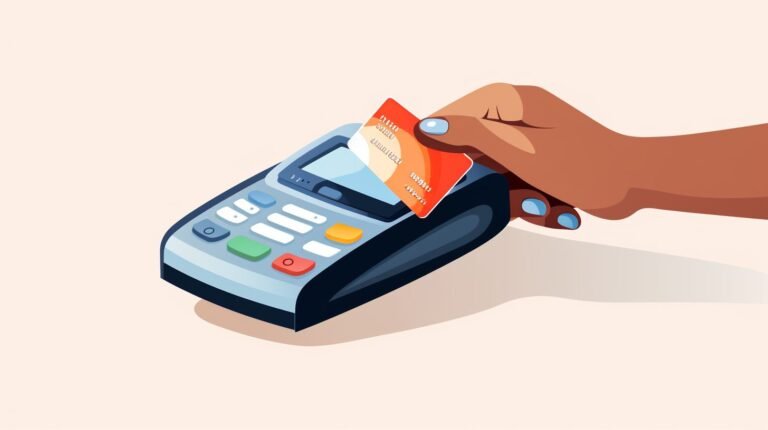Credit Score Factors You Didn’t Know About

Ever get that feeling, like you’re straining your brain trying to understand the complicated puzzle of credit scores? Believe me, I was once stumped by it too. After a lot of hard digging and turning over rocks in search of answers, the lightbulb moments began popping up.
Turns out there are some less well-known influences on our score, which can profoundly shape our financial life. Hungry for empowering knowledge about mastering this essential part of adulting? Well then friend, let’s jump in!
Key Takeaways
- You play a part in making your credit score good or bad. Pay bills on time and don’t borrow too much money.
- There are more factors than you know that affect your credit scores. Each one could help or hurt it.
- Credit scores go into many things: jobs, loans, even relationships! A high score can do a lot of good for you.
- Your score is not just one single number; there are different kinds of scores depending on who looks at them!
- Knowing about all these parts of credit scoring can help you master this part of adult life.
The Key Factors That Affect Your Credit Score
When it comes to your credit score, several key factors pull the strings. These include your payment history, how much debt you owe, the length of your credit history, new credit accounts you’ve opened, and what types of credit you’re using.
To have a healthy score; pay bills on time, reduce debts as much as possible and maintain a long-standing account with a reputable lender. Furthermore attempting to open too many accounts in short space can also lower your rating while keeping up varied kinds of credits like loans or cards may actually benefit it!
Payment History
Making payments on time is good for your credit score. The most important thing that lenders look at is your payment history. They want to know if you pay your bills. If you always pay on time, this can boost your score.
Missing a payment or paying late can harm it though. This includes all kinds of debt like loans and credit cards. Even landlords and insurance companies might check how well you keep up with payments before they make a deal with you.
Amounts Owed
Owing a lot of money can hurt your credit score. It’s not just about the total debt you have though. How much of your credit limit you use counts too. This is called the credit utilization ratio.
A low ratio is good for your score. That means using less than 30% of your total card limits at all times, even if you pay it off each month. Being careful with how many new credit card accounts to open will also help keep your score high and show lenders that you aren’t a big risk.
Length of Credit History
The length of your credit history matters a lot. If you have been using credit for many years, it can help raise your score. This area looks at the age of your oldest account and also checks the average age of all your accounts.
Lenders want to see that you are good at paying on time over a long period. They worry if you open many new accounts quickly because they don’t know how well you handle money yet. So, try not to open too many new lines of credit in a short time as doing so could hurt your score.
New Credit
Getting new credit can change your score. It happens when you open a new loan or card account. This brings what’s called a hard inquiry to your credit report. Too many of these and it may scare off lenders, causing your score to drop.
On the other hand, managing new credit well shows that you can handle more types of debt. This can make your score rise in the long run! So think carefully before taking out new credit – is it really worth it?.
Types of Credit in Use
Credit cards, store accounts, installment loans and mortgages matter in your credit score. This mix is called “types of credit in use“. It shows how you handle different kinds of debt.
Using different types of credit can help raise your score. But it’s best not to take on debt you don’t need. Always pay back what you owe on time and in full.
Lesser-known Factors That Influence Your Credit Score
Did you know that simply checking your credit score can impact it? Also, many believe carrying a small credit card balance each month is healthy for their rating – but this is not always the case.
Paying down your balances before they’re due may also offer a slight score boost. Shockingly, any late payments won’t take effect until after 30 days, giving you some leeway to manage hiccups in payment schedules.
Another eye-opening fact; there’s not just one universal credit score—different scoring models mean we all have multiple scores. Keep reading to see how these unexpected factors play into your financial profile!
Checking Your Credit Score
Looking at your own credit score won’t damage it. You have the right to check it as often as you want. Online sites let you see your score for free. They give a score that is pretty close to what lenders will use to judge you.
Be sure to check for problems or mistakes on your report too! It’s better if you see them first and solve them, rather than a lender spot them later on. Staying aware keeps your credit safe and strong!
Carrying a Credit Card Balance
Keeping a balance on your credit card won’t boost your credit score. In fact, it can harm it. How much money you owe in relation to how much you can borrow forms your debt-to-credit ratio.
A low ratio is good for your credit score. Paying off all that you owe each month keeps this number low and helps keep the credit card company happy too! It’s better not to carry a lot of debt on your cards.
So, empty out those debts quick as possible! Your wallet will thank you later!
Paying Down Credit Card Balances Early
I always make sure to pay down my credit card balances as early as possible. This is how it helps:
- Boosts my credit score: Paying off debt sooner means a lower credit utilization ratio. This number shows how much of my credit I am using.
- Improves my chances for new credit: Credit card companies like it when I keep my balance low or pay it off. It tells them that I can handle debt well.
- Saves me money: It’s simple, the quicker I pay off my credit card, the less interest charges pile up.
- Better financial health: Keeping a check on credit card balances helps to avoid falling into a debt trap.
Late Payments Impact After 30 Days
Late payments can hurt your credit score. But it’s only after 30 days that they start to make a dent. As soon as you miss the due date, mark your calendar for day thirty. That is when lenders might report it to the credit bureaus.
Your payment history carries a lot of weight in your credit score. So even a single late payment can lower your score if reported.
If you’re worried about a late payment, do what you can to pay before those 30 days are up. It may save your credit score from taking too much of a hit! After all, keeping good control of our debts and paying on time helps keep our financial life steady!
Multiple Credit Scores
You may not believe it, but you don’t just have one credit score. You’ve got many! These scores can vary based on the data used to calculate them. Each lender might use a different score or version when making decisions.
The FICO Score 8, for example, is often used by lenders and consumers alike. It’s vital to know because your financial choices could depend on these scores.
The Impact of Credit Score on Your Life
Your credit score is more than just a number, it’s an indicator of your financial health and has far-reaching effects on various aspects of your life. It not only dictates the interest rates you’re offered for loans or credit cards but can also impact job applications as many employers now check potential employees’ scores during the process.
In some cases, it even matters in relationships since higher credit scores can be associated with greater trustworthiness and stability by showing commitment to financial responsibilities.
This underrated three-digit figure essentially forms an intangible link to your success and quality of life down the road.
Effect on Job Applications
A low credit score can make it hard to get a job. Some bosses use your score to see if you manage money well. A good score may mean the boss sees you as ready for big work tasks. Also, having different types of credit can give your score a boost and impress future bosses too! But, missing card pay or owing too much might bring down your score and hurt job chances.
So, keeping up with payments and not borrowing more than needed is key.
Influence on Relationships
Your credit score can play a big role in your love life. Yes, you heard that right! It may sound weird but it’s true. Studies show that people with higher scores tend to have more chances of success in relationships.
This happens because these folks are seen as responsible and reliable.
For example, if two people want to buy a house together, they both need good credit scores. Banks think that if both people pay their bills on time, they won’t have problems paying back the loan.
So when picking a partner, remember this fact about good credit habits: They can help build trust and increase relationship happiness!
Predicting Financial Success
Your credit score tells a story. It may show if you have been good with money in the past or not. This helps people make guesses about your future. For example, banks look at your credit score before giving you loans.
If it is high, they believe it is safe to lend you money because you will give it back on time. But if your score is low, they fear their money might be lost. Credit cards also use this same idea for new card owners and fixes how much limit they can get on their card use based on these scores.
Does Divorce Have an Impact on Your Credit Score?
Divorce and its impact on credit can be significant. When a couple decides to separate, their joint financial responsibilities may also be split. If payments are missed or debts accumulate, it can negatively affect both individuals’ credit scores. It is crucial to address financial obligations and consider potential credit ramifications during the divorce process to minimize any long-term consequences.
Frequently Asked Questions
In this section, we’ll tackle a few common questions that often come up when discussing credit scores and their impact on your life. Topics will range from the difference between credit reports and credit scores to the role FICO plays in determining your score.
Featured queries aim at expanding understanding and clearing frequently encountered misconceptions regarding credit related issues.
Difference between Credit Reports and Credit Scores
Credit reports and credit scores are not the same. A credit report lists your loan history. It shows if you pay on time or late. Your score is just a number. It sums up all in your report into one number between 300 and 850.
Higher numbers mean you handle loans well, they say you’re less risky to lend money to compared to someone with a lower score.
The role of FICO in Credit Scoring
FICO plays a big part in credit scoring. It stands for Fair Isaac Corporation, the company that made the first credit scores. Most people know it for one thing – FICO Score 8. This score is used by many lenders to decide if they should give you money or not.
Your FICO score depends on some key parts of your financial life. These include how often you pay bills on time and how much money you owe right now. So, keeping up with bills and holding less debt can help increase this score.
Conclusion
Credit scores rule our money world. They can open or close doors for us. Get to know these score secrets and your goals will be within reach. Don’t stay in the dark any longer!
FAQs
1. What impacts your credit score that you didn’t know about?
Debt settlements, bankruptcies, foreclosures, lawsuits, wage garnishments and liens are all factors that can impact your VantageScore or FICO® Score.
2. How does a soft inquiry made by auto dealers or mortgage bankers affect my credit score?
A soft inquiry from auto dealers or mortgage bankers doesn’t hurt Credit Management as it is seen as rate shopping by the financial review board and doesn’t pose a major credit risk.
3. Can bankruptcy or repossession lower my credit score?
Yes! Bankruptcy, repossession along with charge offs, closed accounts & collections count under negative information in your Experian report leading to denied credit and needing for dispute handling to improve credit scenario.
4. How can I find out more about what’s on my public judgment?
You can check AnnualCreditReport.com for data breach which gives access to TransUnion, Equifax and Experian early reports having public judgments providing cybersecurity
5. Does using secured cards like Cash Back Credit Cards help improve the Credit Scoring System?
Yes! Regular use of rewards credit cards such as travel credits cards increases your financial responsibility perception impacting positively on improving scores apart from artificial intelligence enabled tools like’Experian Boost’.
6. Do cyber threats compromise personal data affecting customer’s finance?
Threats like fraud & identity theft could cause issues but effective measures such as security freeze & prevention alongside excellent cybersecurity make sure there is no loss in terms of finance due to breaches.






